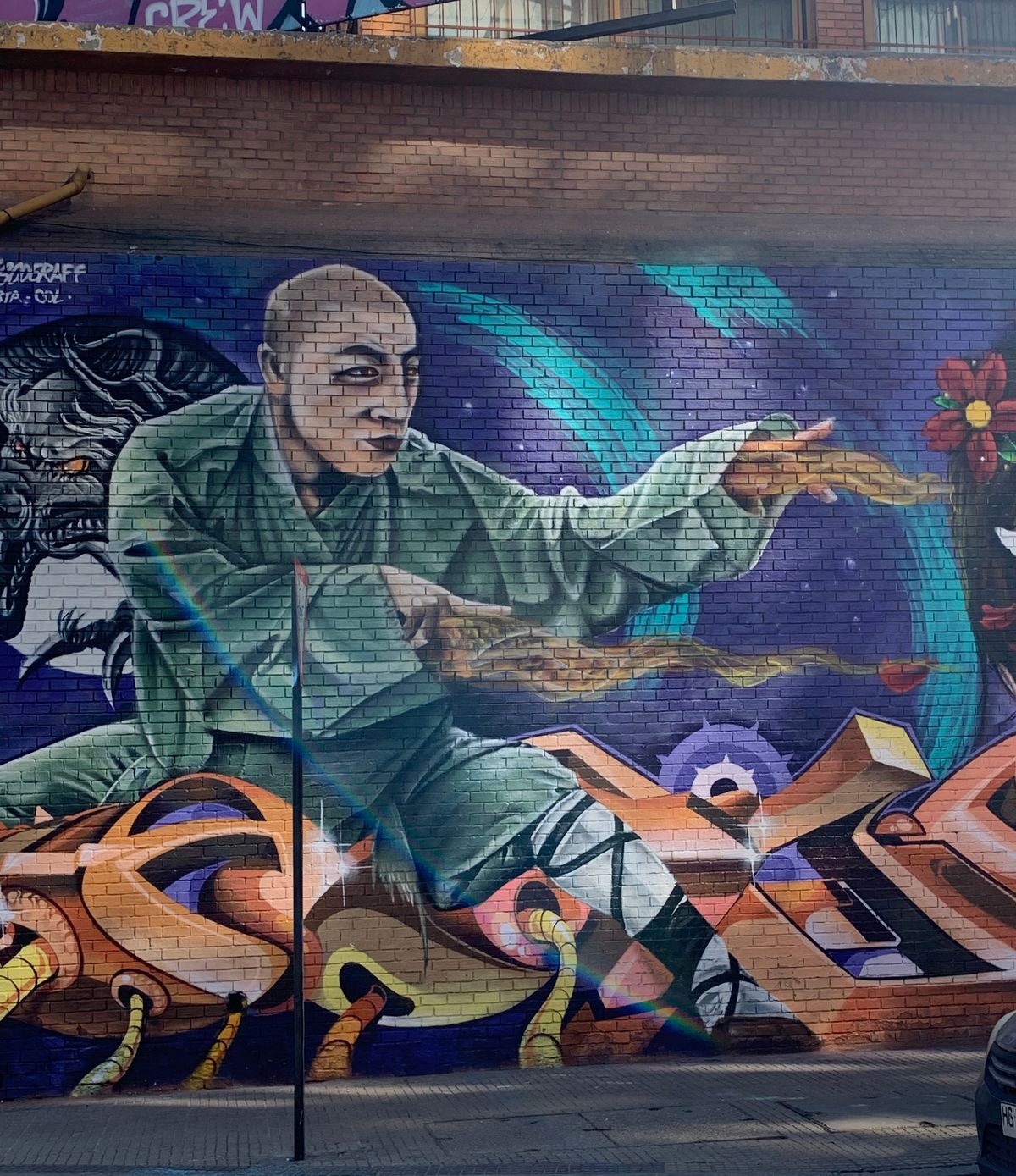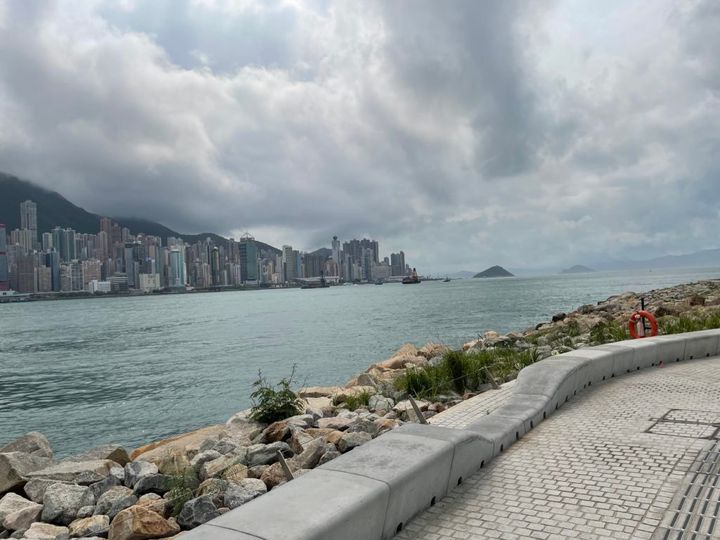I
The current accumulation of “crises” (pandemic, global warming, financial crises, mass unemployment, the risk of nuclear conflagration, increasing rates of femicides and suicides) might appear as symptomatic of a specific juncture in the long modern/colonial era of changes and crises. (1500-2000)
An unquestionable signpost of our time is the reconfiguration of global governance. The world order regulated by Western international law set up after the Treaty of Westphalia and based on the nation-state model is becoming obsolete. The North Atlantic defensive manoeuvres to contain Russia and China and the distrust of Iran and other disobedient countries in the Global South shows that the monster has escaped from the laboratory. There can be no doubt that a tsunami in the world order is impinging. These transcendental changes now affect the fabric of everyday life (inflation, unemployment, deficient health service as witnessed in the North Atlantic during the pandemic, the financialization of the economy and the promotion of the war industry under the rhetoric of enforcing peace, etc.). All of this is provoking social discontent with unpredictable consequences in national and inter-state politics.
During the period ranging from the year 1500 to the year 2000, the world order has been consistently constituted by states (monarchic at first, secular nation states since the 19th century) of the North Atlantic (Spain, France, Holland, England and from 1945 onwards the Unites States). After the Treaty of Westphalia (1648) and the formation of European nation-states, the world order was regulated by the unipolar vision and ambition of Western Europe and the US. Since the year 2000 and especially over the first decade of the 21st century, the dominance of the North Atlantic (NATO, US and the EU) has been weakening, their hegemony has begun to slip through their fingers. Dominance is being enforced to compensate for the loss of hegemony.
The Western loss of hegemony entails two main and intertwined consequences, both indicative of the change of era. The economic displacement from the North Atlantic to the Pacific and Indian Ocean, from unipolarity to multipolarity compounded, in the sphere of the cultural imaginary, the growing presence of the political society confronting the failure of the nation-states, both in the so-called developed countries (the “garden”) and in the former colonies of the developed countries (the “jungle”).
The signs evidencing this shift emerged in East and Southeast Asia around the year 2008 in the wake of the financial crisis in and of the west. It was there that the concept of de-Westernisation was launched to capture the political re-orientation of disobedient states (China, Russia, Iran and, in the balancing acts, of India and Turkey). Contrasting with and inconveniencing the neoliberal promotion of weak states and of markets guided by the “invisible hand” under NATO’s surveillance, de-Westernization requires, instead, strong states able to confront and delink from the juggernaut of Western neo-liberal designs and to engage in their own rebuilding and reconstitution.
De-Westernization is leading the way to multipolarity, and delinking from the unipolar Western world order. Western media and state offices are right when they argue that China and Russia are dismantling the international world order controlled by the North Atlantic and the United Nations. And it is true. But not because China and Russia are attacking the Western world order. They are simply disobeying and working on the reconstitution of their own needs and interests. They are not attacking but defending themselves from the harassment of Western designs.
The manifest displacement of economic and political leverage to the East, the rehabilitation of Russia in the inter-state world order, and the formation of the BRICS (now enlarged with the request and probable acceptance of Turkey, Iran, and Saudi Arabia), each signal the closure of the world’s westernization (1500-2000), and the change of era.
The de-Westernizing inter-state multipolar revolution has provoked a counter-revolution to re-Westernise the world. That is, to maintain the privileges acquired during the era of changes. Ukraine is a point of no-return in the re-Westernizing effort to contain de-Westernization, multipolarity in order to preserve unipolarity and the global march toward westernization. The tension between de-Westernisation and re-Westernisation entails a struggle as well over control of the cultural imaginary in the field of technic (the will to preserve unipolarity or the will to delink from it to advance multipolarity) and technology (the tools for preserving privileges: sanctions, debts, exponential military advancements, wars of images to criminalize and diminish the adversary).
Beyond the inter-state political confrontations and the unstoppable march towards multipolarity, another sign of the change of era is perceptible in the public sphere. Both domestically and internationally, diverse decolonial world-making praxis are erupting in all imaginable areas of life. The explosive preponderance of the words “decoloniality/decolonization” in the recent past points to the emerging decolonial sensorium which is demanding concepts and theories to capture the tragedies and hopes of the change of era.
Though the end of the Cold War and the fall of the Soviet Union closed the final chapter in a long era of changes, decolonization at the time was entangled with the idea of creating nation-states ruled by the natives by delinking from liberal capitalism and state communism. But one thing is the Government and the other the States. Progressive governments are moved by good intentions, but the State entangled in the modern/ colonial world system, is an institution that in consortium with the corporations and the mass media, leaves little room for governmental manoeuvres. The Bandung Conference which generated the Non-Aligned Movement remains the main symbol of the era. The splendours of the decolonizing struggles were precisely to send the settler back to their home. The miseries were the creation of nation-states that, on the one hand were controlled by the local elites and, on the other, remained entangled with and dependent on the former metropoles. However, the struggles for decolonization left an invaluable legacy of decolonial thoughts and decolonial world-making that today reside in the hands of political society in the public sphere, and no longer in the hands of the nation-states.
At the end of the Cold War, the concept of coloniality was introduced at the crossroads of the local colonial legacies in the South American Andes, and the global tsunami that ushered in the collapse of the Soviet Union. Coloniality was and remains one of the most significant break-through concepts of our time. It unmasked the logic according to which different forms of colonialism across the planet rested from the 1500s to the end of the 20th century. Simultaneously, it re-oriented the decolonial horizons that were already at work during the Cold War.
Coloniality is a concept that originated in the former Third World. It is an un-disciplinary way of thinking. It does not aim to revamp the old academic disciplines or propose a fashionable call for interdisciplinarity or trans-disciplinarity within the university. Coloniality is directed to grasp modernity’s darker side and to illuminate the underlying logic that explains conjunctural events. For example, coloniality understands the fall of the Soviet Union and the neoliberal celebration of the end of history as conjunctural events. Furthermore, the decolonial option pieces together the planetary grammar of civil and epistemic disobediences and rebellions that connect peoples and their struggles worldwide. Inter-national dialogues of people are at work, while inter-state relations are moved by economic and political competition. Some states control and manage other states; some states move to liberate themselves from such control. People who take inspiration from their local histories and diverse political traditions challenge the global rhetoric of modernity with its insistence on a hollow language of rights and universal truths, hiding the logic of coloniality acting on domination, exploitation, oppression, demonization, and destitution.
III
The concept of coloniality drew attention to the inherent logic underpinning a whole era of changes in all its domains: institutional, political, economic, which pervades standards of knowledge, modes of conduct, and preferences. Concealing coloniality from view were the constant promises of modernity for newness, change, progress, development. Each of these goals of Western modernity presupposed domination, exploitation, oppression, and generated conflicts. The conflicts were growing and the widespread struggle for decolonization during the Cold War was the sign that the era of Westernization was closing.
Three outcomes of decolonization are evident in the 21st century. One was to evince that decolonization and the nation-state are bad bed fellows. Secondly, nation-states which did not endure settler colonialism prior to their formation (China, Russia, Iran) co-opted capitalist economy, and responded with de-Westernizing politics. De-westernization implies capitalism but rejects neoliberalism. All of us in the planet are experiencing the consequences of the inter-state conflicts.
De-Westernization stopped the Western easy ride towards westernizing the planet. Although the Westernizing project is still alive, remodelled by re-Westernization to maintain the privileges of unipolarity, the drive towards multipolarity seems irreversible. This is no longer a Cold War. Or, if it is, the scenario has changed radically. The Cold War belonged to the era of changes and the struggle was between two Western ideologies, liberal capitalism, and state communism. De-Westernization is grounded in capitalist economy and the reconstitution of their own destituted histories, praxis of living and knowing, sensing, and thinking. Multipolarity in the global inter-state order requires strong State formation as well as a political philosophy grounded in the modulations, languages, memories, and sensorium in the history of each de-westernizing state project for whomever the European enlightenment is a chapter of an alien history. De-Westernization delinks from Western dictates in all areas of experiences. Which doesn’t mean that negotiations are not possible, and war is necessary. De-Westernization is not promoting war but a community of common destiny. Which doesn’t mean either that war could be avoided if neoliberal or national (MAGA) re-Westernization continues to act as the supreme judge in all order of living.
Thirdly, as mentioned before, decolonial thinking and decolonial gnoseology are delinking from the coloniality of knowledge which means that they are breaking up from Western epistemology (regulation of knowing) and accumulated knowledge (libraries, archives, museums). But again, decoloniality is not and cannot be a State regulated project and therefore decoloniality cannot be confused with de-Westernization. The coloniality of knowledge, is the enduring legacy of the wide-spread political society which is today moving towards pluriversal knowing and living. Decoloniality, at large, installed in the wide sector of the planetary population that knowing is necessary for living free from domination and oppression, replacing the idea that knowing is for advancing the disciplines and/or maintaining the beliefs that more is better, and that technology (in its industrial and digital versions) can be relied upon to problem solve the way to a happy future.
The demand for sexual and racial equality cannot stop at the level of inclusiveness within a hegemonic discourse or tokenistic enfranchisement. The decolonial need for equality must be supported by disrupting the mechanisms of oppression and dismantling the epistemic foundations on which racism and sexism are predicated. To do so, gnoseological reconstitutions of Western epistemology are of the essence. Neither sexism nor racism can be side lined with epistemologically grounded arguments. Decolonial knowing cannot remain caught in the spider web of Western epistemology. It needs to dispute its premises and challenge its undisputed power of enunciation. It is vital to delink from the conceptual, emotional, and institutional premises upon which racism and sexism were mounted and maintained. In this regard, we can say that coloniality shed light on the dark side of modernity, while at the same time broadening the spectrum of power and control over people.
For instance, the legal ending of slavery was legitimized by humanistic proclamations issued by the same imperial managers that created slavery. To disguise the fact that slavery was no longer economically convenient compared with the possibility of waged labour needed to expand the industrial revolution, humanistic proclamations were necessary. To make this displacement, the changes in the exploitation of labour was not sufficient. It had to be justified in the name of material production for progress, the freedom of the workers earning a salary and disguised behind the ethical masks enunciating that slavery was inhuman. Knowledge-making for decolonial world-making cannot be managed by the State. In the inter-state system, any and every state must deal with (not necessarily choose) the rules of the international game that are being redrawn by the de-Westernizing/multipolarity revolution, and the re-Westernizing/unipolarity counter revolution. All areas of experience, international and national are now shaped by these conflicts.
IV
The change of era comes hand in hand with a growing centrality and decolonial resurgence of indigenous knowledges and presences across the Americas, New Zealand, Australia, and Africa, as they reclaim the restitution of the land from which they were dispossessed. Land not as private property but as a communal living resource and a site of spiritual reconnections with the Earth and with the living cosmic energies. Development has no place in Indigenous land reclamation and respect for the living Earth (Pachamama in Andean languages).
Given the frequent post-modern and Marxist missreadings of decolonial horizons, let us state the obvious: no one wants to go back in search of a pristine past. Such a blind misunderstanding only occurs to someone who is still wearing the glasses of the epoch of changes (in which the post- found its place) and is not seeing yet the explosions that are bringing about the change of era.
The reconstitution of indigenous cosmologies and cosmogonies by the indigenous themselves (what is termed re-emergence and re-existence) is bringing the destitute past to the present and denying the pretence and expectations of Western modernity and postmodernity wherein, everyone had to jump on the bandwagon of progress and development looking forward to the horizon of the one and only possible future. Western modernity is grounded in Western cosmology (the theological formalization of Biblical story telling by Saint Thomas Aquinas) and its mutation and continuity in the secular scientific/philosophical versions of the explosion of space itself (the Big Bang). No doubt, de-Westernization and decoloniality have this in common: the reconstitution of the destituted. Both are contributing to gnoseological pluriversality displacing epistemological universality. But one thing is State managed projects, and the other is the will of the people in the transformation of the public sphere.
It so happened that the constitution of Western cosmogony and cosmology, theological and secular, succeeded in destituting, but not killing, all cosmogonies and cosmologies still existing today. Be that of All Under Heaven, in the case of de-Westernization, or of the cosmologies grounded on Complementary Dualities rather than in Binary Oppositions. Reconstitutions are taking place not only in the decolonial political society operating in the public sphere but also in the sphere of de-Westernization. The change of era is framed by the conflictive co-existence of decoloniality, de-Westernization and re-Westernization. This overall frame impinges in everything else, from climate change to pandemics, from technology to finances, from industrialization (mechanical and digital) to extractivism and the idea of “natural resources”, from art and literature to philosophy and sciences, from institutional religion to deinstitutionalized spirituality.
Of special interest for the academy, is that parallel to the Western loss of hegemony in the political and economic arena, Western epistemic hegemony is also shedding relevance. Hence, multipolar de-Westernization is walking hand in hand with pluriversal gnoseology. To be clear, de-Westernization and decoloniality share the need and the bend toward re-emergences and reconstitutions, the first is the task of the State, the second of the political society in the public sphere.
During the past decade, decolonial defiances have permeated institutions such as the university and the museum, foundational pillars in the coloniality of knowledge. This is especially true with respect to the underlying principles of cognitive disciplines, the epistemic organisation of knowledge in every disciplinary domain, and the aesthetics which standardise desire and subjectivity in line with the constitutive phase of the world’s Westernisation. Other areas of daily life have started to be questioned by decoloniality, spurring the unveiling of coloniality’s pervasiveness in fashion, food, tourism, art, and media. In other words, though the era of settler colonialism reached its climax, its underpinning coloniality lived on to these days. Hence, the conflictive co-existence of de-westernization, decoloniality and re-westernization attempting to contain both by different means.
IV
What is bringing about the change of era is not a “transition” but the “explosions” in all corners of the planet where modernity/coloniality generated turbulences, dissatisfactions, and conflicts. Explosion is the key word to understand the changes in the era of changes that promises “newness”, from the change of era. In the change of era the foundations are trembling. In the era of changes, the foundation remains solid, and the changes are in the surface. Indeed, the changes maintain the foundations. In the scenario of the change of era, the prefix “post” and the noun “transition”, equally foundational during the past era of changes, are emptied of their significance. They are out of place because the change of era is no longer “new” or “post” but something else.
Hence, the gnoseological reconstitution of Western epistemology is of the essence to understand the meaning of explosion instead of transition. A change of era, more than a mere transformation within the same order of the imaginary, brings about a de-Western and decolonial sensorium (subjectivity and inter-subjective relations) which calls for gnoseological understanding to guide decolonial and de-western praxis of living and thinking. The three co-existing trajectories in conflict, have been engendered from this “explosion”, none of which indicates a transition from something existing which offers ground to conceive of the changes as a mere post or newness of the same. This is what Giuseppe Tomasi di Lampedusa’s known dictum means: in the change of era, the changes are necessary, so things remain as they were.
The change of era is a macro explosion or diverse local explosions which multiply the “transits” from A to B. Decoloniality and de-Westernization refer to the connectors among the diversity of planetary explosions that re-Westernization attempts to contain. Re-Westernization aims to maintain the era of changes in its place. The familiar rhetoric for it is “The Great Reset” (DAVOS) and the “Great Lockdown to Great Transformation” (IMF). Both, key words, reset, and transformation are in unipolar and universal singular. In the public sphere, the companion expression is “Reset Modernity” (Latour). The explosion opens the pandora’s box of multiple cosmologies, languages, and temporalities, all entangled with coloniality and delinking from modernity, in the processes of reconstituting themselves on their own local histories, languages, cultures, politics and praxis of living.
Understanding what is happening today as resulting from the decolonial and de-western explosions rather than as transitions in the era of changes, within the same limited frame of Western modernity, helps us to better grasp the meaning and consequences of the two major trajectories which re-Westernization attempts to contain. However, they seem to be in a struggle to stop the irreversible that westernization generated. The three present trajectories (two breaking away and one attempting to stop their delinking) are mapping the unknowable futures that we can imagine but hardly design.
Translation: Giovanni Tosti-Croce, Allison Madigan, Walter Mignolo
Walter D Mignolo is the William Hane Wannamaker Distinguished Professor of Romance Studies at Duke University. William Hane Wannamaker Distinguished Professor of Romance Studies. Among his books related to these topics are The Darker Side of the Renaissance: Literacy, Territoriality, and Colonization (1995), which was translated into Chinese and Spanish; Delinking: The Rhetoric of Mo-dernity, the Logic of Coloniality, and the Grammar of Decoloniality (2007), translated into German, French, Swedish, Rumanian, and Spanish; Local Histories/Global Designs: Coloniality, Subaltern Knowledges, and Border Thinking (2000), translated into Spanish, Portuguese, Korean; and Turkish in progress; and The Idea of Latin America (2006), translated into Spanish, Korean and Italian. On Decoloniality: Concepts, Analysis, Praxis, co-authored with Catherine Walsh, was published in 2018 (with an Italian translation in progress), and in 2021 he published The Politics of Decolonial Investigations.



